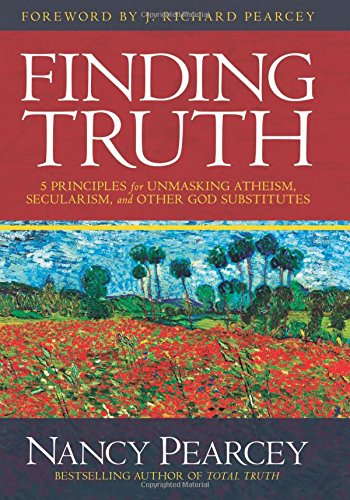ENV is pleased to share the following excerpt from Nancy Pearcey’s new book,Finding Truth: Five Principles for Unmasking Atheism, Secularism, and Other God Substitutes. A Fellow of Discovery Institute’s Center for Science & Culture, Pearcey is a professor and scholar-in-residence at Houston Baptist University and editor-at-large of The Pearcey Report. She is author of the 2005 ECPA Gold Medallion Award winner Total Truth: Liberating Christianity from Its Cultural Captivity and other books.
A major way to test a philosophy or worldview is to ask: Is it logically consistent? Internal contradictions are fatal to any worldview because contradictory statements are necessarily false. “This circle is square” is contradictory, so it has to be false. An especially damaging form of contradiction is self-referential absurdity — which means a theory sets up a definition of truth that it itself fails to meet. Therefore it refutes itself….
An example of self-referential absurdity is a theory called evolutionary epistemology, a naturalistic approach that applies evolution to the process of knowing. The theory proposes that the human mind is a product of natural selection. The implication is that the ideas in our minds were selected for their survival value, not for their truth-value.
But what if we apply that theory to itself? Then it, too, was selected for survival, not truth — which discredits its own claim to truth. Evolutionary epistemology commits suicide.
Astonishingly, many prominent thinkers have embraced the theory without detecting the logical contradiction. Philosopher John Gray writes, “If Darwin’s theory of natural selection is true,… the human mind serves evolutionary success, not truth.” What is the contradiction in that statement?
Gray has essentially said, if Darwin’s theory is true, then it “serves evolutionary success, not truth.” In other words, if Darwin’s theory is true, then it is not true.
Self-referential absurdity is akin to the well-known liar’s paradox: “This statement is a lie.” If the statement is true, then (as it says) it is not true, but a lie.
Another example comes from Francis Crick. More.
But, of course, no intellectual consideration matters once the naturalists can hear the giant maw of the school system sucking it down. After a while, everyone believes what doesn’t make sense, and no one knows why or cares.
Follow UD News at Twitter!
